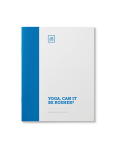Yoga, Can It Be Kosher?
$25.00
In recent decades, thousands of Jews have gravitated to the East in pursuit of spiritual enlightenment. More recently, several Eastern Practices have been secularized, popularized, and repackaged as physical and meditative exercises. Does this make them kosher? Which practices are problematic and should be avoided? And what was the Rebbe’s response to the popularization of Yoga and Transcendental Meditation back in the ’70s?
(67 pages)
Submitted by a Shliach in New York
| Language | English |
|---|---|
| Paper Type | Research Paper |
Related Products
Hashgachah Pratis literally means, “Personal divine providence.” This refers to the ever-present eye of G-d that watches and directs our every step. Where did this concept originate from? Who coined the term? Once the world has been created by G-d, why is it necessary for Him to continue to “manage” my life? How is free choice to be reconciled with Divine Providence?
How did man come to possess the arts of the occult? What is the scope of their influence over reality? How were they transmitted and shared? Are they still in existence?
In what way are Kabbalistic practices to be distinguished from the occult? Our tradition tells of sages who used the secrets of Kabbalah to manipulate the powers of creation. Does this fall under the same rubric?
Related: Bones and Broomsticks: Sorcery in the Torah Part I
In 1903 professor Simon Newcomb argued that human flight was a “mathematical impossibility,” but that same year, the Wright Brothers successfully launched the first powered airplane.
Having your travel route shortened and arriving at your destination almost momentarily is known in Biblical terms as Kefitzas Ha-derech. It may be “naturally impossible,” but miracles do happen! From Avraham to the Baal Shem Tov, some of our greatest heroes experienced this firsthand.
Read this paper to explore this fantastic feat, its history and halachic ramifications. Have a safe trip!
(67 pages)
Submitted by a Shliach in Florida
מעיקרי האמונה הוא החיוב להאמין שהקב”ה מושלל הוא מגשם וציור גופני. אך האומנם זאת היא הדיעה המוסכמת אצל גדולי ישראל לדורותיהם? והאם ביכולתו ית׳ הבלתי בעל גבול להתלבש גם בדמות גופני? על שלילת הגשמות והנמנעות אצלו ית׳ בספרות החקירה והחסידות.
As a complex, strategic game known to improve memory and cognitive abilities, the Jewish attitude to Chess is an intriguing one. Were Torah scholars in favor of this pastime? Are there halachic issues to be aware when playing this game?
A fascinating exploration of Kabbalistic, Midrashic, and Chassidic teachings about
the significance and spiritual meaning of twins.
How would you rate your concern for the environment?
Are there Torah perspectives about respect for nature, plant life, wastefullness and the like that you should be aware of?
The following collections feature sources exploring each of the following Mitzvos, as well as insights into how these laws inform our personal lives:
A. Ba’al Tashchis – (17 pages)Table of Contents Request this paper
B. Shmittah – (50 pages)Table of Contents Request this paper
C. Cutting Fruit Trees – (44 pages)Table of Contents Request this paper
D. Orlah – (16 pages)Table of Contents Request this paper
E. Tza’ar Balei Chaim – (47 pages)Table of Contents Request this paper
F. Kilayim – (25 pages)Table of Contents Request this paper
“Why do the wicked prosper?” (Jeremiah12:1) This question has troubled the faithful from the times of Job and Jeremiah until today. Ought our faith in an unknowable G-d be weakened when witnessing the prosperity of the wicked? A smorgasbord of classic approaches.
(Hebrew)
Why do the Jewish people need leaders? Where is the line between guidance
and dictatorship? What qualifies one to be a leader? An analysis of one of
Judaism’s most central institutions.
Is there any mystical significance to the fact that the brain is designed in a contralateral fashion, with the right side controlling the left and vice versa?
Many natural substances have psychoactive (mind-altering) properties that can significantly impact one’s mental state and affect one’s mood.
May an observant Jew avail himself of such stimulants? Is such recreation acceptable from a halachic standpoint, or does it contravene one’s Torah obligations? How would we judge actions taken while under the influence of drugs and alcohol?
See also: “The Drugs Debate” on the appropriate legislative attitude towards controlling the proliferation of potentially harmful substances.
Table of Contents
Jewish ritual is rife with physical actions—such as standing, bowing, rising— which hint to the spiritual drama unfolding in the background. This paper takes a close look at several of these to gain an understanding of the complex interplay between man’s physical state and his spiritual state.





![Bones and Broomsticks: Sorcery in the Torah Part II [New!]](https://catalog.myjli.com/wp-content/uploads/2025/05/SAMSBAB-350x448.png)









